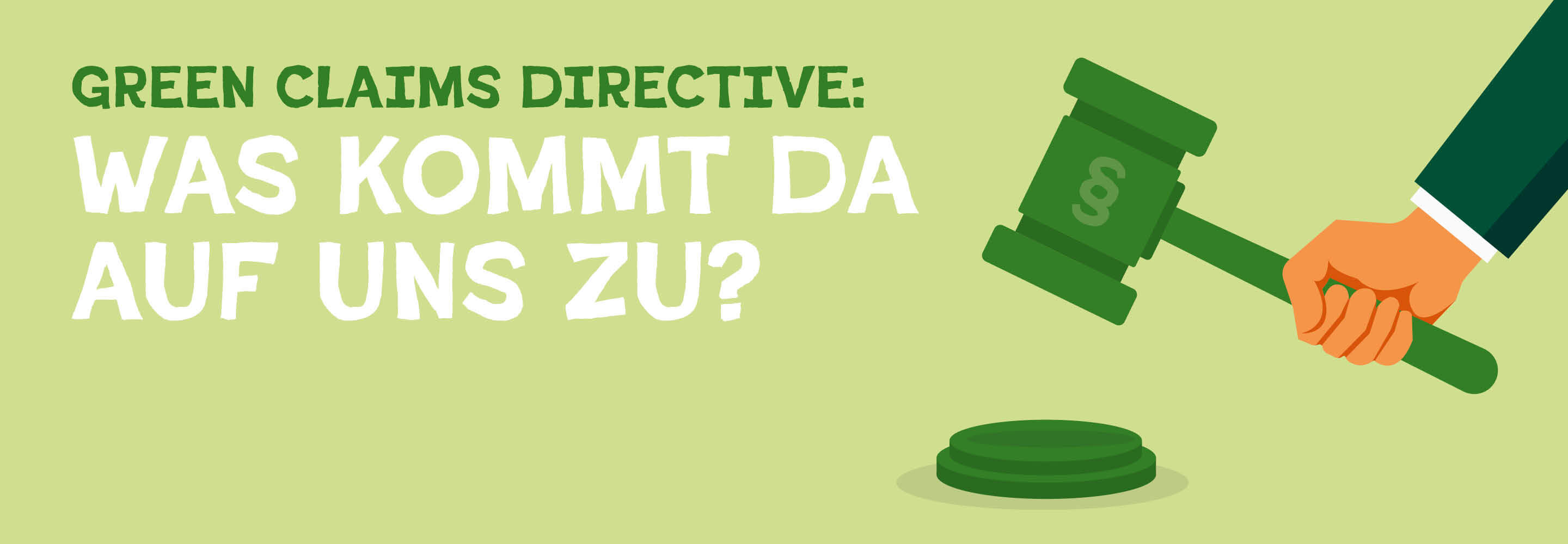

In future, what is sold as environmentally friendly should also be demonstrably environmentally friendly and offer consumers a credible basis for their purchasing decisions. Sounds good, actually. But what exactly does this mean and what challenges does it pose – especially for the organic sector and sustainability communication?
1. why dealing with green claims is becoming complicated
Green claims are “green” advertising statements in an environmental and sustainability context, such as “CO2-neutral”, “climate-neutral” or “eco”. According to the EU Commission, there are 230 sustainability labels and 100 eco-energy labels with very different levels of transparency in the EU. This makes it difficult for consumers to recognize which claims only want to give the impression of being eco-friendly and which are actually based on ecological measures.
The EU wants to change this: In March 2023, it published a proposal for a new EU directive, the Green Claims Directive, on environmental advertising and marketing claims and environmental labels with the aim of establishing verification, verification and sanction standards for this area. Environmental statements should therefore be backed up by scientific facts in future. In addition, green claims must be certified by authorized testing bodies for a fee before they can be used.
A provisional political agreement between the Council of the European Union and the European Parliament with improvements compared to the proposal of March 23, 2023 was announced on September 19, 2023.


2 What is the aim of the new directive?
As part of a comprehensive EU project, including the European Green Deal, the directive is designed to promote the development of a greener economy and empower consumers. For example, many people want to make more sustainable purchasing decisions and need certainty about the credibility of “green” claims.
3. the regulations should apply to these companies
The new directive affects all companies in the EU that advertise products or services as environmentally friendly or sustainable. This regulation applies to various sectors, from food and beverage manufacturers to the textile and fashion industry, energy suppliers and mobility service providers. Micro-enterprises with fewer than 10 employees and an annual turnover of less than two million euros are exempt.
4. how does greenwashing deceive consumers?
Greenwashing or “greenwashing” is a marketing practice in which companies falsely give the impression of being environmentally friendly without actually taking sustainable measures. It serves to deceive consumers in their purchasing decisions and to polish up the company’s image. Here are a few examples of common practices:
5. requirements for the advertising of sustainable products
In future, the ecological benefit of a product or service should therefore be clear and verifiable. Statements such as “climate-neutral” in particular require extensive data collection. The information must be based on independent, scientific findings and at the same time be formulated in a clear and precise manner. The information must not be false or misleading. Furthermore, according to the current status of the draft, all “green claims” must undergo an approval procedure before they can be used. Heavy fines are provided for violations.
6 Packaging design is also affected
As already mentioned, unrealistic images may no longer be used. The Directive states: “The visual language and overall presentation of the product, including the layout, choice of colors, images, pictures, sounds, symbols or labels included in the environmental claim should faithfully and accurately represent the extent of the environmental benefits achieved and should not overstate the environmental benefits achieved.” This means, for example, the end of peacefully grazing cows on milk cartons, while the milk actually comes from barn farming.


7. what to fear from the new directive
The new Green Claims Directive sets out clear criteria for environmentally friendly claims, which can lead to more transparency and reliability and increase consumer confidence. It also creates an incentive to invest more in environmentally friendly measures in order to remain competitive in an increasingly environmentally conscious market.
Many companies are nevertheless concerned about the expected effects, here are just a few of the assessments: In a press release, the Association of Organic Food Producers (AöL) welcomes the proposals against greenwashing in principle, but points out possible risks: “Currently, it is to be feared that claims that are within the scope of the organic regulation will be permitted, but that organic-related claims made by association logos or other non-governmental seals that go beyond this will first have to be comprehensively checked and approved by the state.” The DIHK assesses: “The Green Claims Directive threatens over-regulation. Small and medium-sized companies in particular will effectively no longer be able to advertise with green claims in future because they cannot afford the certification.” The amount of bureaucracy required to meet the requirements of the new regulations will also be high – the flood of “green data” that companies will have to collect in future alone would be almost impossible for small and medium-sized green companies to cope with. They would no longer be able to advertise their sustainability. Large companies, on the other hand, would be able to make green claims for some statements as they can collect the data and approve their claims. Even if they are otherwise not that green.


8 Our assessment
The intention of the directive is certainly good and important. We have yet to see what exactly it will contain when it is adopted and how the EU countries will transpose it into national law. However, we are already observing with regret the trend that many companies, in order to avoid risking damage to their image, are discontinuing numerous partly voluntary measures to offset their emissions, which means that great environmental projects are no longer being supported. Of course, there are also a lot of black sheep in this area – and the “good” initiatives have to suffer as a result. But what can companies sensibly do now, how can they prepare? Becoming as transparent as possible is certainly the most important point. Companies can already try to substantiate their advertising claims and communicate this. You should avoid general statements such as “we are climate neutral” and specify exactly which area is climate neutral – and be able to prove it. The basis for this is always a watertight sustainability strategy and communication.
The new directive has not yet come into force – it must first be adopted by the European Parliament and the Council of the European Union, which will probably take place before the European elections in spring 2024. If it is adopted, the EU member states must implement it legally within two years. In Germany, it will probably be integrated into the Unfair Competition Act (UWG).